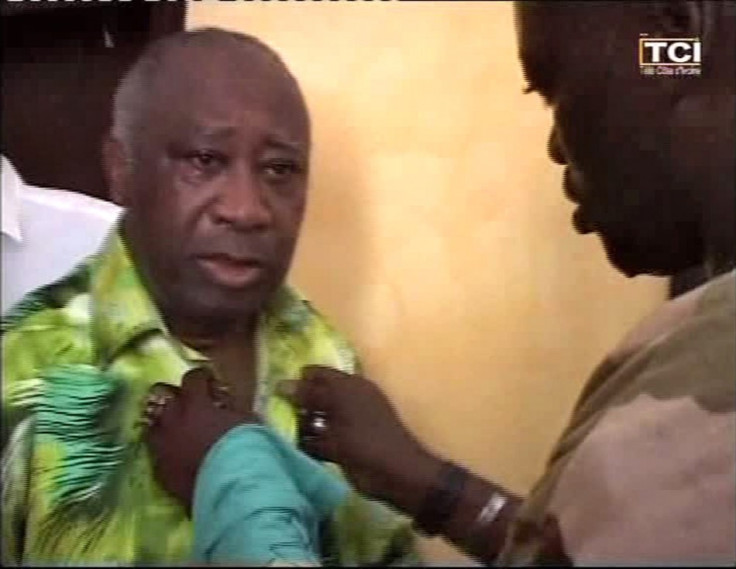Ivory Coast’s Laurent Gbagbo to Appear at The Hague’s International Criminal Court

Laurent Gbagbo, the former Ivory Coast president is expected to make his first appearance at the International Criminal Court where he faces four counts of crimes against humanity.
Gbagbo was transferred to the ICC last week and faces charges which include murder, rape, persecution and other inhuman acts over violence the UN says left some 3,000 people dead.
The former president is now expected to make a brief initial appearance Monday at 2:00pm (1300 GMT), where the he judges will verify his identity , read the alleged crimes and his rights under the court's founding document, the Rome Statute.
Silvia Fernandez de Gurmendi, the presiding judge will also set a date for a hearing to confirm charges against Gbagbo.
It will be at this next hearing, set to take place in a few months that prosecutors will have to convince the court's judges they have enough evidence to bring the former leader to trial.
Gbagbo, 66, refused to admit defeat in the country's last presidential elections in November 2010, won by his rival and former friend Alassane Ouattara.
Clashes between the supporters of the two opposing camps then erupted, plunging the fragile country in yet another vicious circle of hatred and violence, just three years after a peace deal ending years of civil war was signed.
The court issued an arrest warrant against Gbagbo on November 23 for his role in the post-poll violence and an investigation was launched after the court said there were "reasonable grounds to believe" that his camp hired up to 4,500 mercenaries, including fighters from neighbouring Liberia, and armed them.
The pro-Gbagbo forces are also suspected of being responsible for the death of between 700 and 1,048 people.
The leader's supporters reacted angrily at his transfer to The Hague, prompting fears that the next parliamentary elections set for December 11 could also be marred by violence.
Meanwhile Gbagbo's camp described the transfer as "a political kidnapping" and called for a boycott of the December polls.
"The presence of President Laurent Gbagbo in the dock is clearly a judicial error, a swindle, a move to liquidate him politically, socially and physically," Alain Toussain, the leader's adviser said in a statement, issued in The Hague.
While rights organisations welcomed Gbagbo's arrival at The Hague, they have warned that atrocities were also committed by forces loyal to Ouattara and that any prosecution focusing on Gabgbo only could have disastrous consequences for Ivory Coast's 'reconciliation' process.
ICC prosecutor Luis Moreno-Ocampo on the other hand promised an "impartial investigation" and said after Gbagbo's transfer: "This is just the beginning."
© Copyright IBTimes 2025. All rights reserved.





















